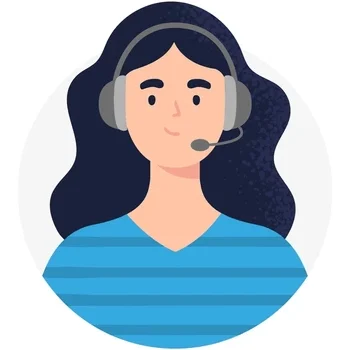DEschooling and UNschooling
DEschooling
Deschooling is a transitional period that some families go through before they start homeschooling, particularly if they are transitioning from a traditional school environment.
It is the process of letting go of the traditional school mindset and practices.
During this period, parents and children take a break from formal schooling to adjust to a more flexible and child-centered approach to education.
The purpose of deschooling is to allow children and parents to decompress from the constraints of traditional education, unlearn any negative attitudes or habits associated with schooling, and re-establish a natural love for learning.
It’s a time for the family to reset their expectations and routines and reevaluate their educational goals.
PURPOSE
-
To transition from a traditional school mindset to a more flexible, child-centered homeschooling approach.
-
The duration is typically a temporary period, the length of which varies from family to family.
STRUCTURE
-
Limited structure: During the deschooling phase, there is less emphasis on formal learning structures and schedules.
-
Transitionary: It serves as a transition to a new approach but may involve some structure initially.
LEARNING APPROACH
-
Transitionary: It's a period of adjustment from traditional schooling to a more personalized approach.
-
Reflective: Families and children use this time to reflect on their goals and values in education.
CURRICULUM
-
No prescribed curriculum: The focus is on adjusting to a new way of learning without adhering to a specific curriculum.
PARENTAL ROLE
-
Supportive: Parents offer emotional support and guidance during the transition.
-
Less directive: Parents gradually shift from a directive teaching role to a facilitative one.
ASSESSMENT & EVALUATION
-
Minimal assessment: During deschooling, assessment and evaluation are typically minimal, as the focus is on adapting to a new approach.
TIME FRAME
-
Short-term: It is a relatively short-term adjustment phase, typically lasting several weeks to months.
FLEXIBILITY
-
Transitional flexibility: Provides flexibility during the transition from traditional schooling to homeschooling.
UNschooling
Unschooling is an educational philosophy and approach to homeschooling that emphasizes a child-led learning experience.
It rejects the traditional structure of formal education and does not rely on a fixed curriculum, schedules, or grades.
Instead, unschooling allows children to follow their interests and passions, encouraging them to learn through everyday experiences, exploration, and self-directed activities.
Unschooling relies heavily on the idea that children are naturally curious and will learn best when they are motivated and engaged in subjects that genuinely interest them.
Parents or caregivers who embrace unschooling provide resources, guidance, and support but do not impose a specific curriculum or set learning goals. The focus is on fostering a love of learning and independence.
PURPOSE
-
A long-term educational philosophy focused on child-led learning and fostering a love of learning.
-
Unschooling is an ongoing approach to homeschooling and doesn't have a specific end point.
STRUCTURE
-
No fixed structure: Unschooling intentionally avoids rigid schedules and traditional curricula.
-
Child-led: Learning activities and routines are primarily determined by the child's interests and curiosity.
LEARNING APPROACH
-
Child-led: Learning is driven by the child's curiosity and interests.
-
Natural learning: Emphasizes learning through everyday experiences, exploration, and self-directed activities.
CURRICULUM
-
No formal curriculum: There is no set curriculum in unschooling; learning is guided by the child's interests and experiences.
PARENTAL ROLE
-
Facilitators: Parents act as facilitators, providing resources and opportunities based on the child's interests.
-
Observers: Parents observe their child's progress and interests and adjust their support accordingly.
ASSESSMENT & EVALUATION
-
Non-traditional assessment: Unschoolers often rely on non-traditional methods like portfolio assessment or discussions to evaluate a child's progress.
TIME FRAME
-
Long-term: Unschooling is a long-term educational philosophy that can extend throughout a child's education.
FLEXIBILITY
-
Ongoing flexibility: Unschooling maintains a high degree of flexibility throughout a child's education.
It’s important to note that some families may incorporate elements of both deschooling and unschooling into their homeschooling journey, and the specific practices can vary widely depending on individual preferences and circumstances.
DEschooling Resources
The deschooling process is an important part of the beginning homeschooling journey and a way to fully benefit from school at home after conventional schools. Deschooling happens as a transition between stopping school and beginning homeschool.
DEschool allows your child to decompress from the influence of the formal education system and prepares your family for a fresh outlook on learning at home by giving them time off during a relaxed schedule at home.
Are you a mom who realizes you’ve been slowly disappearing and aren’t sure how to come back? Maybe you’ve been at this parenting thing for a while and are looking for ways to keep your stamina up.
Or are you a mom who has been looking for your “passion” and feel terrible that you still don’t know what you want to be when you grow up? I’ve experienced all these and more.
Are you thinking about making the transition from public school to homeschooling? Or maybe you feel the need to overcome public school mentality?
If so, you may find that you want to learn how to deschool with confidence
Discover what deschooling is and if it could help your family have a smooth and peaceful transition as you prepare for homeschooling.
If you have been thinking about transitioning from public school or even private school to homeschooling, you may be feeling just a little bit overwhelmed.
The concept of deschooling focuses on taking a break from the formal lessons and activities of school and allowing your family time to adjust to the new school setup. While many families struggle the first few weeks of school, you don’t have to!
UNschooling Resources
How to unschool your child:
"If you know you only had a year more with that child, what would you expose him to? Where would you go? What would you eat? What would you watch? What would you do? If you had only ONE year - and then it was all over, what would you do?
Four seasons. Twelve months. 365 day.
Do that THIS year. And the next. That's how unschooling works. By living life as if it were an adventure. As if you only had a limited amount of time with that child. Because that's the way it IS."
- Kelly Dunlap Lovejoy
Unschooling is one of the more out-of-the-box ways to homeschooling. Many believe that homeschooling means no schooling, and this isn’t the case.






